
Viking Names
Skardi
The Old Norse male personal name Skarði was originally a byname from Old Norse skarði ‘notch, hack’. A few instances are recorded as a personal name in Norway from the eleventh century onwards. It is also found as a byname in Norway and Iceland and in some Swedish runic inscriptions in the form skarþi. Skarði is possibly found in a Danish place-name and a strong form of the name Skarth appears in Denmark in the fifteenth century. The personal name may also be the first element in Scartho, Lincolnshire.
Read More
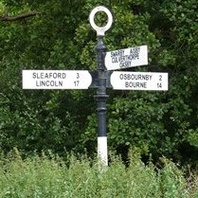
Viking Names
Aswarby
Aswarby, in the Aswardhurn Wapentake of Lincolnshire, is a compound name formed from the Old Norse male personal name Ásvarðr and Old Norse by ‘a farmstead, a village’. The construction of the place-name is identical with that of Aswardby, in the South Riding of Lindsey in Lincolnshire. Ásvarðr is also the first element in the district name, Aswardhurn, and presumably both the settlement and the district names refer to the same man. Aswarby is now a joint parish with Swarby.
Read More

Viking Names
Thormund
Þormundr is probabably an Eastern Scandinavian make personal name formed from Old Norse Þór- ‘the god’s name Þór’ and Old Norse –mundr ‘protector’. It is rare in Sweden, but a number of instances are recorded in Denmark including the form þurmutʀ in a runic inscription from the early Viking Age. The name was not found in West Scandinavia until the sixteenth century. Some forms of the place-name Thurmaston, Leicestershire seemed to be influenced by Þormundr in the thirteenth and fourteenth centuries.
Read More
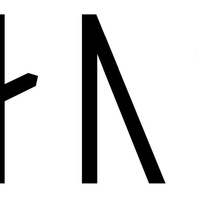
Viking Names
Gauti
Gauti and the related Gautr are short forms of names in Gaut- or -gautr, or an original byname meaning ‘man from Gautland’. This region comprises the provinces now known as Östergötland and Västergötland in southern Sweden, and is the homeland of the Geats in the Old English poem Beowulf. Gauti is recorded in several Swedish runic inscriptions. Gauti is the first element of the place-names Gautby, Lincolnshire and Goadby Marwood, Leicestershire.
Read More
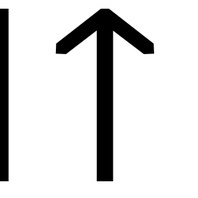
Viking Names
Ketil
The Old Norse male name Ketill is widely used across the Scandinavian world, including the Viking diaspora. It is also common as an element in compound names such as Grímketill (in later times usually appearing in a reduced form as Grímkell) or Ketilbjörn. In place-names it occurs for example in Kedleston, Derbyshire, Ab Kettleby, Leicestershire and several names in Lincolnshire such as Ketsby and Kettlethorpe. The name is identical to the common noun ketill meaning ‘kettle, cauldron’, which is a loan-word from Latin catillus (a ‘small basin’ or ‘bowl’) in Germanic languages. This suggests it was originally a by-name and there are many suggestions as to how such a by-name might have come about, including because someone had a head shaped like a cauldron, or wore a cauldron-shaped helmet, or engaged in ritual activities using a cauldron. In any case, by the Viking Age it is well established as a given name, without obvious reference to its meaning. The element is frequent in the Danelaw, both as a name and as the first element of place-names. Occasionally, the place-names may contain the Old English cognate cetel/cietel/cytel, used topographically for a deep valley surrounded by hills, and often associated with springs or streams. Its use as a personal name, however, seems to have been introduced by the Scandinavians.
Read More

Viking Names
Krok
Krókr, an original byname meaning ‘crook-backed’, related to Old Norse krókr ‘hook’, or possibly ‘crooked-dealer’. It is a rare and late personal name in West Scandinavia, but is more common as a byname early. The personal name is also recorded in Sweden and Denmark and is found in a Danish runic inscription as well as in several Danish place-names. Additionally, the name is probably found in Normandy. The name is common throughout the Danelaw and found in many place-names such as South Croxton and Croxton Kerrial in Leicestershire and Croxall, Staffordshire (formerly of the Repton and Gresley Hundred of Derbyshire).
Read More
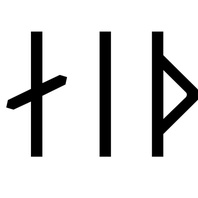
Viking Names
Hreidar
The Old Norse male personal name Hreiðarr is very common in Norway but relatively uncommon elsewhere in the Viking world. It can be found as the first element in the place-name Rearsby, Leicestershire. It also features as the name of the main character in the short tale of Hreiðarr the Foolish.
Read More
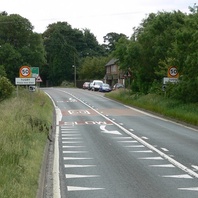
Viking Names
Tugby
Tugby, in the East Goscote Hundred of Leicestershire, is a Scandinavian compound from the Old Norse male personal name Tóki and Old Norse by ‘a farmstead, a village’. In the Domesday Book, a Tochi is recorded as holding Tugby as part of a larger estate. It is now a joint parish with Keythorpe.
Read More
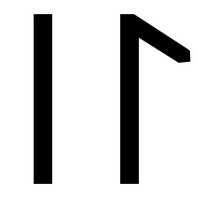
Viking Names
Spillir
Spillir is a relatively rare male name which is found as the first element in the place-name Spilsby, Lincolnshire. The name possibly derives from the Old Norse word spillir ‘spoiler, breaker’.
Read More
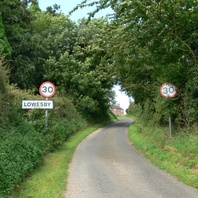
Viking Names
Lowesby
Lowesby, in the East Goscote Hundred of Leicestershire, is a difficult name. The first element possibly comes from the Old Norse male byname Lauss/Lausi ‘loose-living’. Alternatively it has been suggested that the first element could be derived from the postulated Old Norse element lausa ‘a slope’ which is found in Scandinavian place-names in the forms -lösa/-löse; however, this element was no longer used for place-naming by the time of Scandinavian settlement in England. The second element is Old Norse by ‘a farmstead, a village’.
Read More
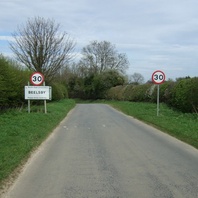
Viking Names
Beelsby
Beelsby, in the Haverstoe Wapentake of Lincolnshire, perhaps comes from the rare Old Norse male personal name Beli and the Old Norse element bý ‘a farmstead, a village’.
